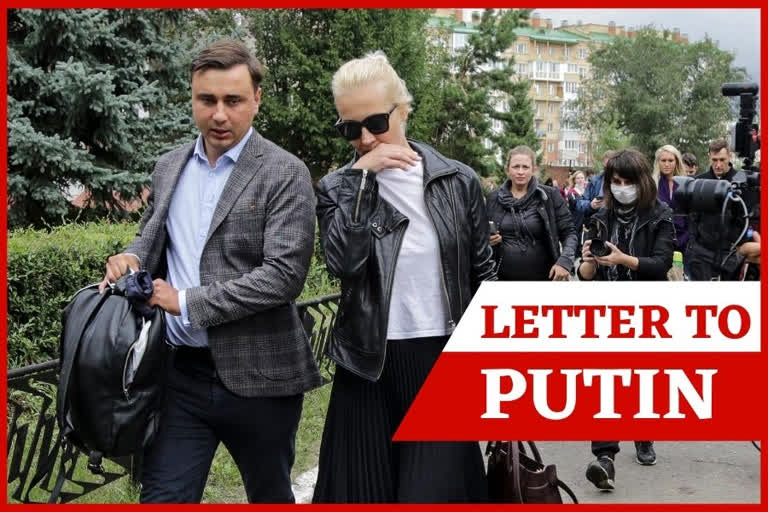Moscow: The wife of Russian opposition leader Alexei Navalny has written a letter to President Vladimir Putin asking him to allow her husband to travel to Germany for medical treatment.
It follows a refusal by medical staff at Omsk Ambulance Hospital no 1 to allow Navalny to be released.
Family and allies of Russian opposition leader Alexei Navalny were fighting Friday to get him moved to a German clinic from the Siberian hospital where he has been in a coma for over 24 hours after local doctors refused to authorize the transfer and amid confusion about what caused the politician’s grave condition.
Navalny, a 44-year-old politician who is one of President Vladimir Putin’s fiercest critics, was admitted to an intensive care unit in a coma in the Siberian city of Omsk on Thursday, following what his supporters are calling a suspected poisoning that they believe was engineered by the Kremlin.
A plane with German specialists and all the necessary equipment landed at Omsk airport on Friday morning, prepared to take Navalny to a clinic in Berlin. But doctors at the hospital said his condition was too unstable to transport him.
Navalny's supporters denounced the medical verdict as a ploy by the authorities to “stall and wait” until the suspected poison no longer is traceable in his system. A chief doctor in Omsk said the physicians treated Navalny didn’t “believe the patient suffered from poisoning.”
Kremlin spokesman Dmitry Peskov said he wasn't aware of any instructions to stop the transfer and that it was purely a medical decision that doctors made based on Navalny's condition.
“It may pose a threat to his health,” Peskov said.
Navalny fell ill on a flight back to Moscow from the Siberian city of Tomsk on Thursday and was taken to the hospital after the plane made an emergency landing in Omsk. His team made arrangements to transfer him to Charité, a clinic in Berlin that has a history of treating famous foreign leaders or dissidents and insisted that the transfer is paramount to saving the politician’s life.
“The ban on transferring Navalny is needed to stall and wait until the poison in his body can no longer be traced. Yet every hour of stalling creates a threat to his life,” Yarmysh tweeted.
Read more:Russian Oppn leader Navalny not poisoned: Doctors
German officials have been in contact with both Russians and a private group that sent a plane to pick Navalny up and support the initiative. “If Mr Navalny wants to get treated in Berlin and if he can come to Berlin, the Charité hospital is ready,” Berlin Mayor Michael Mueller said.
Mixed messages came about what caused Navalny's condition. While his supporters and family members continue to insist on poisoning, Omsk hospital deputy chief doctor, Anatoly Kalinichenko, said that no traces of poison were found in the politician's body and doctors didn't “believe the patient suffered from poisoning.”
Medical Verdict:
Kalinichenko said a diagnosis has been determined and relayed to Navalny’s family members. Navalny's spokesman, Kira Yarmysh, tweeted that the politician's family merely given “a range of symptoms that can be interpreted differently.”
“Doctors still can't determine the cause of Alexei's condition,” she said.
